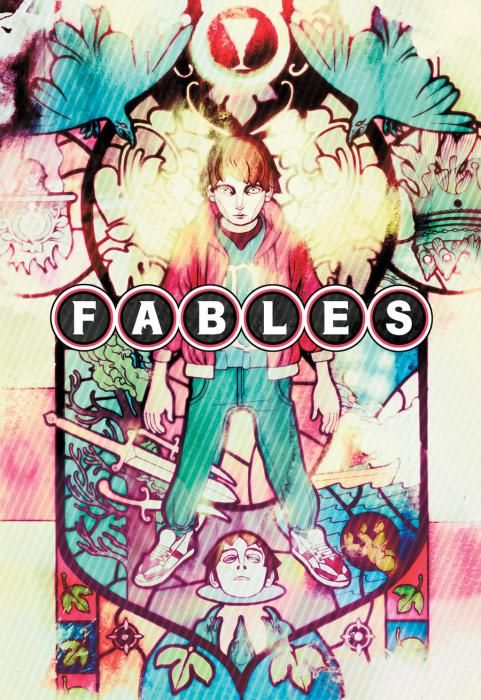By this point, anyone reading the "Fables" storyline "Cubs in Toyland" has figured out that despite the cheery sounding title, this is probably one of the grimmest stories in "Fables" in a while. This is, after all, a story where Bill Willingham and Mark Buckingham have trapped two of the cubs in a world where toys that (accidentally or otherwise) killed children are left to linger, and where there's no actual food for living beings to eat.
Astonishingly, "Fables" #120 makes things look even worse for the cubs.
Most of "Fables" #120 involves Dare's attempts to save Therese and get them out of Toyland, while being haunted by a vision involving the legend of the Fisher King with the offer of the sword and the cup. What I found myself appreciating about the way that Willingham wrote this chapter of "Cubs in Toyland" is that it doesn't have Dare just rolling over and accepting the first (dangerous) option offered to him. Instead he thinks things through, tries to come up with alternate ways of escape, and keeps puzzling through the nasty situation that he walked into. Most of the cubs haven't had that much of a personality up until recently, but Dare's is shining through as a dedicated and genuine hero.
Therese, on the other hand comes across worse and worse with each chapter. Her reaction to discovering that Dare is in Toyland is so selfish and off-putting that it's almost hard to remember that Therese is in desperate straits as well. It's an interesting balancing act; I felt a little bad for Therese even as I grew disgusted with her. What we've seen of her in "Cubs in Toyland" showed us that she's a very self-centered person, and the journey she's gone through has unfortunately only served to accentuate that part of her. In a better situation she might come across a bit better, but as it is she borders on villain.
Buckingham and inker Steve Leialoha turn out some handsome art. The big splash early on where Dare is given his Fisher King influenced vision (with a familiar face offering up the sword and cup) is striking, and the duo are able to convey to the reader the bleakness of Toyland. A lot of the impact of Willingham's script is thanks to the downtrodden, depressing look that Buckingham and Leialoha give to the ideas, and it makes the world of Toyland that much more dangerous.
Also included is the ongoing back-up story "A Revolution in Oz." At three pages a pop, some installments work better than others, and this isn't quite as attention-grabbing. Still, Shawn McManus's art looks great, and this is a story that I'm more interested in reading all in one sitting.
"Fables" #120's main story ends with a figurative harsh smack to the face. Anything can happen from here, of course, but there's no denying the sense of doom lying over the story and its characters. Right now it doesn't look like we have any sort of happy ending in store, but I'd love to be proven wrong. Willingham's story is definitely one of the stronger ones we've had in a while; the emotional battering that he puts us through can be hard to read, but it's quite effective and memorable.

